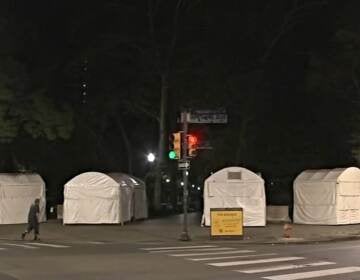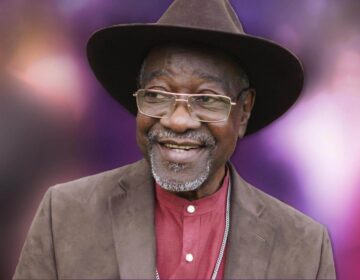Rittenhouse residents bankroll outreach to homeless Philly neighbors
Mental Health Partnerships provides services to homeless people, particularly those struggling with mental illness. Philly condo owners raise funds to extend that work.
Listen 0:00-
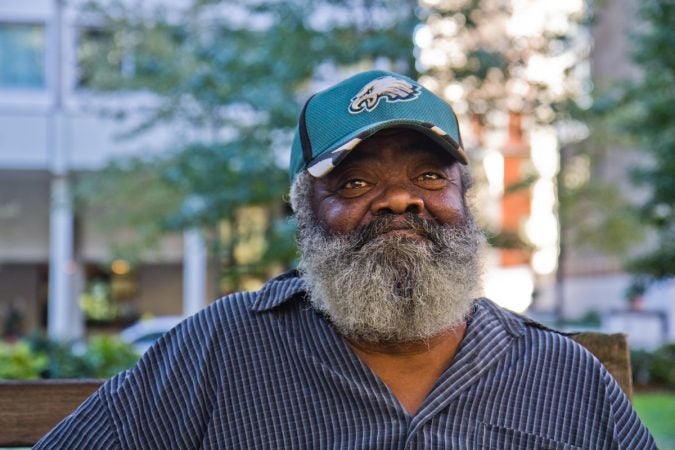
William Smith says he practically lives in Rittenhouse Square park, and he’s grateful for the Mental Health Partnerships outreach specialists who come around every day. (Kimberly Paynter/WHYY)
-
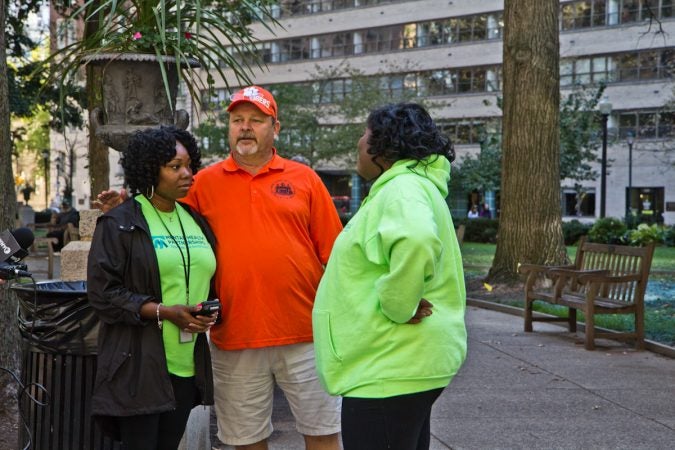
Ashley Cotton (left), Wes Lilly (center) and Sherika Morgan (right), reach out to the homeless in Rittenhouse Square Park. (Kimberly Paynter/WHYY)
-
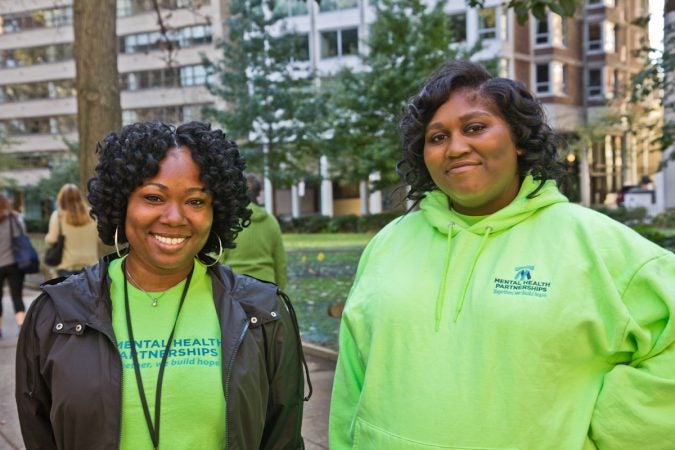
Ashley Cotton (left) and Sherika Morgan (right) are outreach specialists with Mental Health Partnerships in Philadelphia. They walk though Rittenhouse Square Park and invite people who are homeless to come to the New Life Recovery & Education Center. (Kimberly Paynter/WHYY)
-
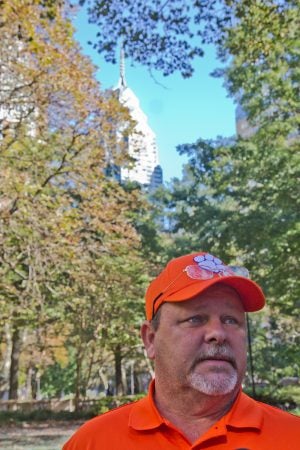
Wes Lilly is the program manager of A New Life Recovery & Education Center in Philadelphia. (Kimberly Paynter/WHYY)
By now, Ashley Cottman and Sherika Morgan could probably walk Rittenhouse Square blindfolded.
For weeks, the pair has been strolling the popular Philadelphia park and the blocks of high-end real estate around it. Not for exercise, but to offer help to homeless people who routinely sit and sleep on benches in the square and the surrounding corners.
It’s a pitch that takes a lot of patience.
“We make it clear that we’re just trying to feed you and get you a shower, and that’s it,” said Cottman on a recent morning. “After they keep seeing our faces, we’re saying the same thing, eventually they come with us.”
Cottman and Morgan work for Mental Health Partnerships, an organization that provides a variety of services to homeless people, particularly those struggling with mental illness and drug addictions.
Five days a week, they hit the streets in neon green T-shirts to offer people in and around Rittenhouse the opportunity to head to New Life, their organization’s drop-in center in West Philadelphia. There, they can grab a meal, a hot shower, even do laundry.
Initially, their positions were funded only through the end of October. Now, thanks to roughly $125,000 in private donations to Mental Health Partnerships, they’ll be working through the winter, a critical time for helping the homeless.
Rittenhouse homeowners contribute to effort
The money, being raised by a handful of neighborhood condo associations, is also going toward transportation costs and housing assistance.
“Their hearts are in the right place. They’re not trying to force anyone to leave. They just want them to get help,” said Morgan of the associations.
Rittenhouse residents Tracy Blumenfeld and Wendy Rosen launched the effort about a year ago after noticing a “dramatic” uptick in the number of homeless people frequenting the park.
They say the situation couldn’t wait for public funds or legislation to be approved.
“It’s just discouraging to walk out into the square in the morning and see people lying on a bench to the backdrop of kids playing on statues,” said Blumenfeld.
After consulting the city and Mental Health Partnerships, they started pleading with their neighbors to donate toward a six-month pilot program.
Their goal: cut in half the homeless population in Rittenhouse.
Their pitch: if everyone gives a little, a lot of people can be connected to services.
“People want to see results, and they’re not very patient, but we just keep plodding along until we make progress,” said Rosen.
The pair is trying to raise $250,000 – for starters.
The fundraising began as Philadelphia’s homeless population was on the rise and the situation in Rittenhouse Square became headline news.
In December, a biker was shot while trying to break up a robbery in the park.
A few weeks later, the city’s Department of Parks and Recreation imposed a short-lived ban on sitting on a ring of low-slung interior walls. It was instituted after neighbors complained about loitering and drug use.
At the time, some critics complained that Rittenhouse’s wealthy neighbors were cloaking exclusion in public safety concerns.
‘It almost makes me want to cry’
Blumenfeld and Rosen insist their fundraising efforts around the homeless is only motivated by good will – to help people such as William Smith get back on their feet.
As Cottman and Morgan rounded the park, Smith greeted them from a dark green bench.
Smith, who has been homeless off and on for the better part of a decade, uses Rittenhouse Square as home base when he’s living on the streets.
He said he doesn’t always need help, but he appreciates being asked because he knows there will be a day he will take advantage of the offer.
“It almost makes me want to cry because I know God loves me, but these young ladies don’t even know me, but they always come and ask me,” said Smith.
Since August, outreach workers have reached out to roughly 150 people. More than 20 have gone to Mental Health Parntership’s drop-in center.
This year’s point-in-time count showed the city had 956 unsheltered homeless people. There were just over 700 in 2016.
WHYY is your source for fact-based, in-depth journalism and information. As a nonprofit organization, we rely on financial support from readers like you. Please give today.



